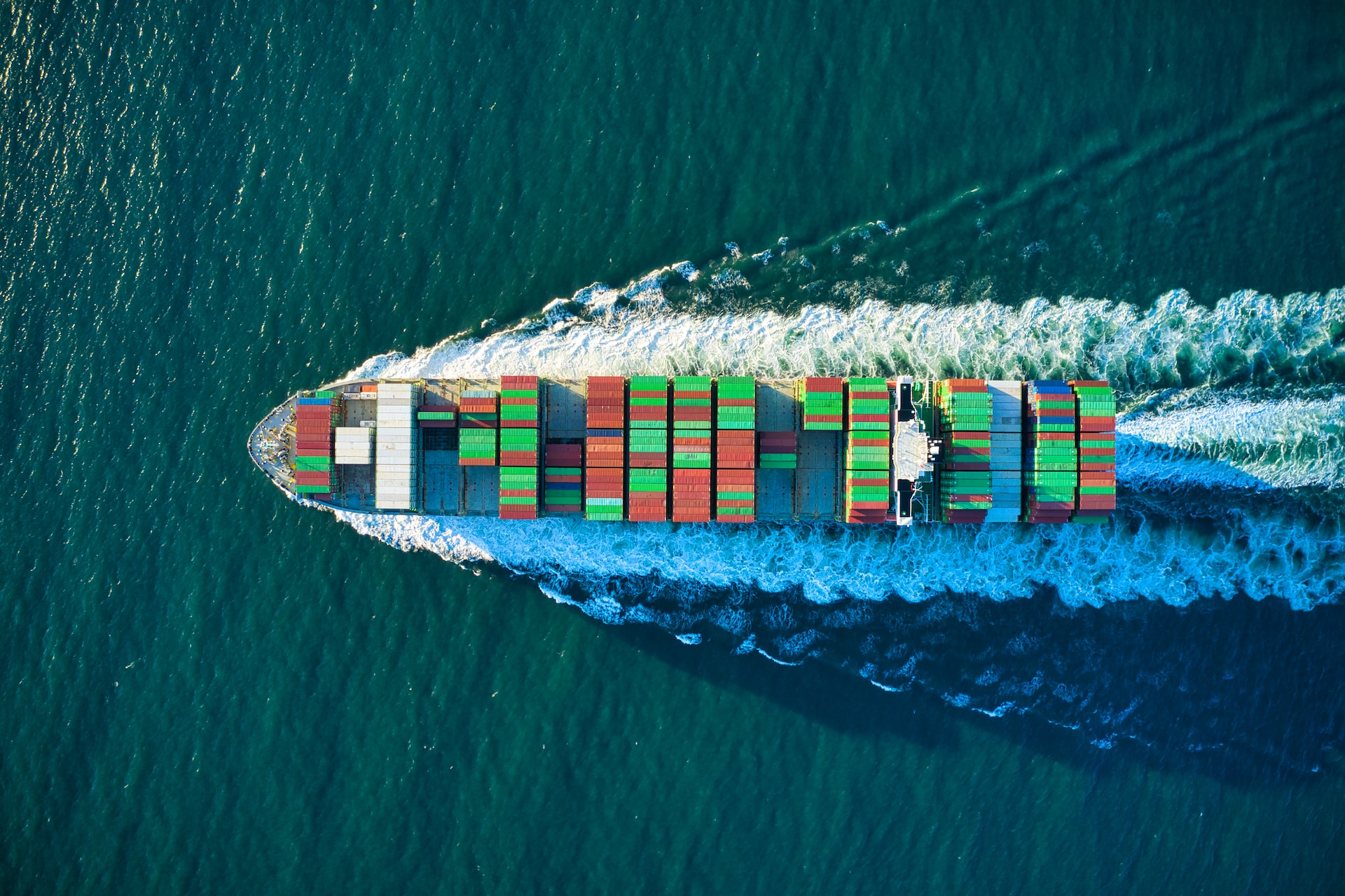How to Protect Your Cargo from Cyber Attacks in 2023
Cybersecurity has been a significant concern for businesses in all industries over the past several years. As technology evolves and more organizations heavily depend on digital systems for their operations, the risk of cybercrime will only continue to increase – well into 2023 and beyond.
Quick Links
In the wake of COVID-19, organizations that rely on cargo transport have become especially vulnerable to cyberattacks. The shipping industry relies heavily on digital systems for tracking and processing cargo, creating an opportunity for malicious actors to exploit.
As businesses move forward, it has become imperative to take proactive steps to mitigate the risk of cyberattacks on cargo and other transportation systems to protect the integrity of their operations.
How Do Cyber Attacks on Cargo Happen?
Cybercriminals are continuously finding new ways to intercept and corrupt the global supply chain – one of the latest being targeted attacks on cargo systems. Organizations need to be aware that once these attackers gain access, they can have catastrophic ramifications for their operation, from manipulating data to encrypting servers with ransomware until a ransom is paid. It’s essential organizations stay up-to-date on security measures and protect themselves against potential breaches in order to maintain reliable logistics operations.
Companies should be aware and prepared for the potential risks posed by hackers targeting their connected devices used to track shipments. These types of attacks could enable attackers to exploit vulnerabilities in the supply chain, putting goods at risk of being stolen en route before they reach their destination.
In recent years, cargo operations have become a prime target for cyberattacks. Top shipping companies are falling victim to costly ransomware attacks, and billions of dollars in goods are at risk due to malicious efforts targeting global parcel services and smart containers for monitoring shipments. The high cost associated with these incidents drives home the importance of proactively safeguarding against potential threats while finding new strategies to support secure supply chain management processes.
Tips for Protecting Your Cargo
Securing cargo operations is key to protecting your company from cyber threats. To keep freight data safe, use a preemptive approach to strengthen defenses with these helpful tips:
Evaluate Risk Exposure
A comprehensive risk evaluation can be a critical tool for safeguarding your business from the threat of cyberattacks. It allows you to uncover vulnerabilities, gain insight into where and who has access to data within your organization, and determine how best to protect it with thorough security measures. With this knowledge in hand, you’ll have an edge when preparing against malicious actors trying to breach company systems.
The first step in evaluating risk is understanding the scope of the problem. You should start by gathering information about any existing threats or challenges within your organization’s digital infrastructure. From there, analyze potential vulnerabilities and assess the likelihood of a successful attack on these weaknesses.
Coordinate Preparedness and Response
Once you have identified the risks associated with your business’s cargo transportation system, it’s time to develop a plan of action. This plan should include strategies for both prevention and response in case an attack does occur. For example, you should have protocols in place for how to detect potential threats before they become an issue; this could include regular security checks or training sessions on spotting malicious links or emails.
If an attack occurs, it’s important to have a response plan ready so that you know exactly what steps need to be taken to mitigate any damage done by the attack. This could include notifying customers or partners of the situation or taking certain systems offline until they can be secured again.
Maintain Consistent Data Backups
Backing up your company’s data helps you recover quickly in case of a breach or other attack on your system. It’s important to have multiple backups so that you have access to different versions of the data should something go wrong.
Having multiple backups also allows you to keep different files safe and secure on separate servers. If one server is compromised, the other servers will remain intact and unaffected. Data backups provide an extra layer of security and control over access to sensitive information, which helps protect against cybercriminals who may be targeting your company’s cargo.
Adopt a Robust Security Posture Across Partners and Suppliers
One of the best ways for companies to adopt a robust security posture is by collaborating with partners and suppliers with similar values regarding data protection. By partnering with like-minded organizations, companies can better ensure that their cargo remains secure from cyberattacks since most attackers will target the weakest link in a supply chain which often happens to be third-party vendors or suppliers.
To stay ahead of the curve, businesses must ensure that their partners and suppliers are just as diligent about security measures. By having an effective security posture in place across all affiliates, organizations can not only meet industry regulations but also protect themselves from potential risk exposure due to outside parties – safeguarding against unforeseen data breaches or other malicious activity.
Ensuring Social Engineering Awareness
Cargo companies have become a popular target for malicious actors who employ social engineering to obtain sensitive data or access secure systems. This type of attack relies on manipulating individuals into unknowingly divulging information and granting privileges, making it an increasingly severe threat in the digital age.
To safeguard against social engineering attacks, organizations should equip their workforce with security awareness and training that covers the most up-to-date cyber threats. This will enable employees to identify suspicious activity when they see it.
Additionally, companies must have strict policies around what information can be divulged externally and grant access only to authorized personnel in need of confidential data. As part of this effort, employers should provide comprehensive cybersecurity education initiatives, which include instruction on using strong passwords and averting clicking links from untrusted sources.
Put Measures In Place to Protect Your Company’s Cargo
Companies that take the initiative to protect their cargo from cyberattacks now will prevent costly consequences in the future. By implementing protocols for prevention and response, consistent data backups, a secure partner and supplier infrastructure, as well as educating employees on social engineering awareness tactics, businesses can rest assured they are ready to face whatever security threats come their way.
Author Bio:

David is CEO of DB Schenker USA, a 150 year old leading global freight forwarder and 3PL provider. David Buss is responsible for all P&L aspects in the United States, which is made up of over 7,000 employees located throughout 39 forwarding locations and 55 logistics centers.
Why WooCommerce is the Best Choice for Your Online Store?
WooCommerce stands out as a top option for anyone looking to build an online store. This platform…
0 Comments8 Minutes
How to Use AI-Powered SEO Tools for WordPress eCommerce
SEO is a critical factor in the success of any e-commerce WordPress store. As competition…
0 Comments11 Minutes
Why Short-Form Videos Are the Future of Content Marketing
Your Instagram customers spend over 50% of their time watching short-form videos and reels. Rather…
0 Comments12 Minutes
The Role of Digital Marketing in Business Growth
Online marketing touches every aspect of a business, whether it is initiating the idea or for an…
0 Comments3 Minutes
AI Meets Authenticity: Balancing Automation and Human Touch in Content Marketing
Is your brand starting to sound like a robot? In a world where algorithms write faster than any…
0 Comments8 Minutes
Essential Tools for Enhancing Web Design and UX Hosting
Have you ever visited a website that felt slow, clunky, or confusing? A website that is poorly…
0 Comments11 Minutes
How a Mini Cart Transformed My Store’s Shopping Experience
Okay, real talk—running an online store is hard. You think you’ve got everything figured out, you…
0 Comments9 Minutes
Balancing Your Security Initiatives With Industry Compliance Requirements
Managing a business today comes with a number of daily battles that need to be fought. Resources…
0 Comments11 Minutes








